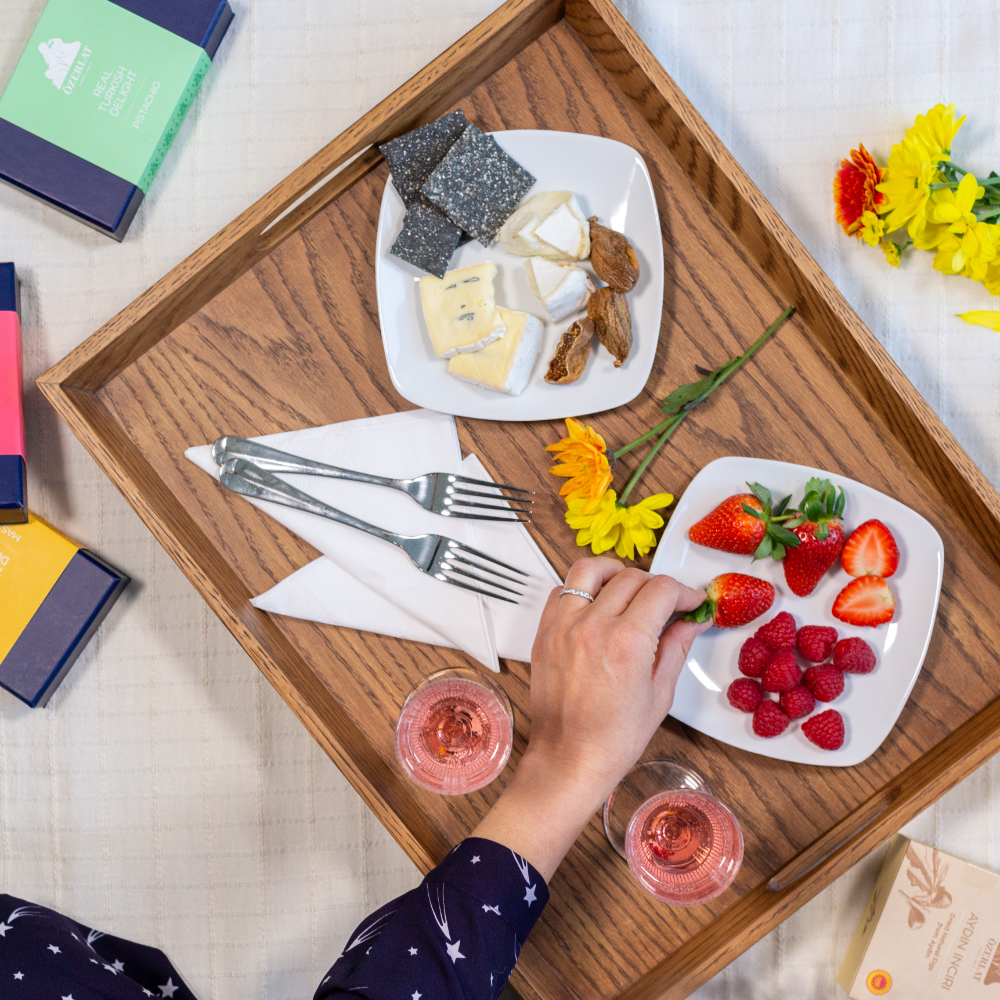
Ramadan, or as it is referred to in Turkish, ‘Ramazan’, is quickly approaching and it is a wonderfully sacred time of year within the Islamic community. The month of Ramadan allows you to feel closer to friends and family whilst appreciating the blessings that life brings.
Fasting is a challenge but it is worth every struggle. That’s why in this article, we will help you through Ramadan 2023 as well as provide you tips to make the most of the holy weeks ahead. Throughout this time remember to allow yourself the perfect Ramadan treats and food to make sure you see out the month and enjoy every minute of it.
When Is Ramadan 2023?
Ramadan this year started early springtime, and the Ramadan dates for 2023 are between Wednesday 22nd March and Thursday 20th of April. It is a wonderful time for spirituality and connecting with the Almighty as well as with loved ones.
You can enjoy Ramadan food throughout this time but you must stop eating and drinking by sunrise and sabah namazi – the early morning prayer.

Our Top Tips To Use When Preparing For Ramadan
At the start of Ramadan, you can eat before 6:40 am, but by the end, the sun rises earlier and you need to have your last meal before 5:30 am.
That is why it is a good idea to be prepared throughout the month of Ramadan as it can be a challenge to go without food or water for many hours. It is all about understanding that you will become thirsty, hungry and tired but then you get to reward yourself when the sun goes down. You can be proud every evening of the strength and discipline that you have shown.
Here are our top tips for Ramadan that will help guide you through the month with great success:
1. Perform The Optional Prayers (namaz)
Throughout Ramadan, you have your required prayer schedule, but if you have been busy and have fallen behind with your prayers over the year, this is a good chance to catch up.
Or you can perform optional prayers throughout Ramadan, which will help you feel closer to God. These are voluntary nighttime prayers and are classed as additional worship. This can help you to take the extra time to connect even more with your faith and see through the holy weeks of Ramadan.
2. Try To Never Miss Sahur – The Morning Meal
To make sure you are in the best position to fast all day, try to ensure that you never miss Sahur. This is the first meal you are allowed to eat before dawn, making it an important meal to kick-start your day.
A great way to make the most of sahur is to wake up a little earlier by 40 minutes or so and eat a well-balanced meal. This extra time will allow you to drink enough water and eat nourishing food to get you through till lftar – the meal eaten after sunset during Ramadan.
3. Sleep Will Help Guide You Through
Sleep is the foundation for your physical and mental well-being and during Ramadan, it can be greatly affected as you try to stay awake for Sahur and work and stay busy until lftar. Due to your sleep pattern being disrupted, it can have a negative impact on your body resulting in fatigue and headaches-that is why you need to try to be disciplined and stick to your sleep schedule. This will help you to stay energised, happy, and in good health.
This could be taking a nap when you have some downtime and trying to limit any screen time when you want to sleep because it can keep your brain stimulated and leave you restless, unable to fall asleep.

4. Remember To Eat Light Portions
After a day of fasting, it can be tempting to pile your plate high around Iftar and overeat and go for as many sweet treats and snacks as possible. However, overeating can cause discomfort and digestive issues therefore it is advised to stick to your normal portion sizes and aim for lighter meals to ease any stress on your digestive tract.
To keep your body balanced and in harmony, it is a good idea to only eat what your body truly needs. You can enjoy Ramadan treats but not to excess.
You can enjoy many treats during Iftar at dusk:
What Is Iftar & Why Is It Important?
Iftar is a significant part of Ramadan, it is where you generally come together as a community and break your fast. Iftar is the second meal of the day after Sahur and is eaten at the time ezan, after the evening prayers.
It is a time to eat and enjoy dinner but it is also a spiritual experience, combining feasting with sacred prayers. Fasting allows you to understand the importance of food and water and at the time of ezan, you feel grateful for what you have in front of you and give thanks to God and his blessings.


